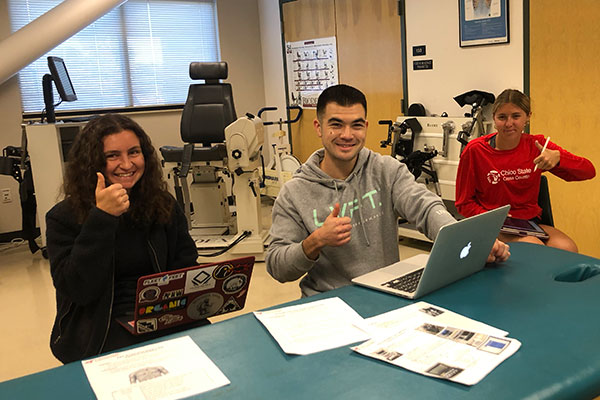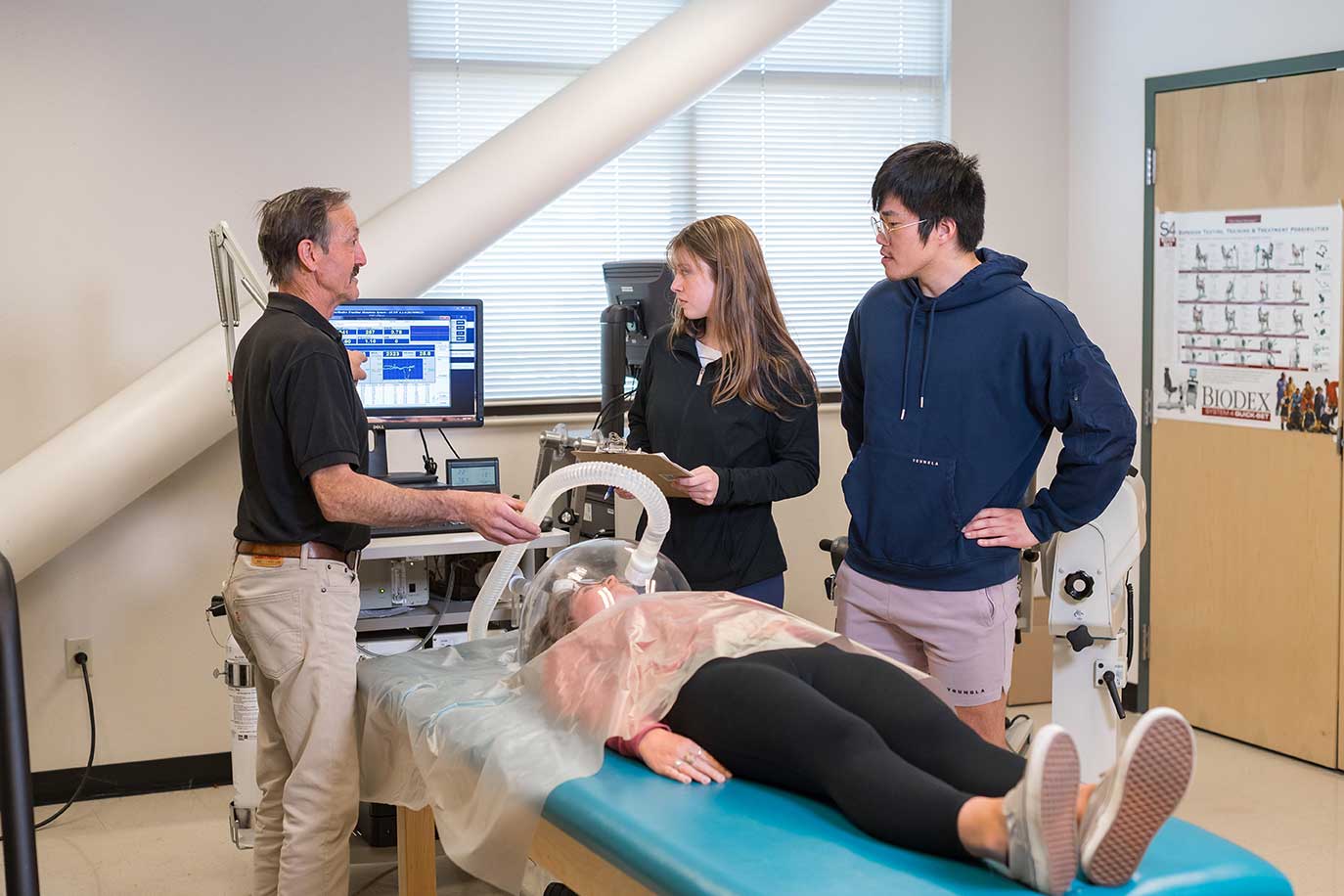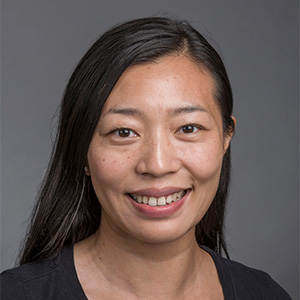Kinesiology Program on Instagram
Research & Scholarly Work
General Overview
The Exercise Physiology program is dedicated to conducting research-related activities that advance knowledge of human performance and health. Our goal is to use applied and basic science techniques to explore acute responses and adaptations to chronic exercise. In our program, expert faculty utilize a range of cutting-edge equipment and technology to mentor student-led, collaborative efforts that lead to professional presentation and peer-review publication.
Exercise Physiology Faculty Scholarly Interests
Jack Azevedo, PhD
Physiological and biochemical effects of acute and chronic exercise in individuals with chronic disease or dysfunction, e.g. type 2 diabetes, or spinal cord dysfunction. Mitochondrial adaptations with training and detraining. Effects of supplements on endurance performance.

Andrew D’Lugos, PhD
Dr. D’Lugos’ research focuses on skeletal muscle physiology as it relates to exercise performance and quality of life. Specifically, Dr. D’Lugos’ work integrates measurements at the level of the whole muscle down to the single cell, examining the physiological responses of skeletal muscle to challenging stimuli such as exercise, nutrition/medication, aging, and disease.
Feng He, PhD
My research focuses on the role of oxidative stress on physiological responses to acute and chronic exercise in musculoskeletal, cardiovascular, and immune systems within a variety of population. Specific research interests include:
- Diet and weight loss
- Static exercise training and muscle function
- Nutrition supplementation and aging
- Oxidative stress and chronic diseases
- Environmental physiology
Ryan Perkins, PhD
My research agenda has a clinical flavor to it, focusing on the inflammatory burden associated with aging/disease and benefits of exercise on these processes. More specifically, my interests include:
- Aging & inflammation
- Metabolic disorders
- Adaptations to chronic exercise
- Muscle immune infrastructure
Select Scholarly Work
Peer-Reviewed Publications
- Perkins RK, Lavin KM, Raue U, Jemiolo B, Trappe SW, Trappe TA. Effects of aging and lifelong aerobic exercise on expression of innate immune components in human skeletal muscle. J Appl Physiol (1985) 120: 1483-1492, 2020.
- D’Lugos AC, Fry CS, Ormsby JC, Sweeney KR, Brightwell CR, Hale TM, Gonzales RJ, Angadi SS, Carroll CC, Dickinson JM. Chronic doxorubican administration impacts satellite cell and capillary abundance in a muscle-specific manner. Physiol Rep 7(7): e14052, 2019.
- He F, Chuang C-C, Zhou T, Jiang Q, Sedlock D, Zuo L. Redox correlation in muscle lengthening and immune response in eccentric exercise. PLOS ONE 13(12):1-19, 2018.
- Schubert MM, Astorino TA, Azevedo JL. The effects of caffeinated “energy shots" on time trial performance. Nutrients 5(6): 2062-2075, 2013.
- Sabrina S. Salvatore, Kyle N. Zelenski, and Ryan K. Perkins. Age-Related Changes in Skeletal Muscle Oxygen Utilization. J Funct Morphol Kinesiol 7:87, 2022

Professional Presentations
- R Graham, A Carasco, B Salgado, E Guerrero, and A D'Lugos. Effects of gelatin supplementation on skeletal muscle recovery following eccentric exercise. SW ACSM Regional Conference. Costa
Mesa, 2023 - Maxwell T. Aiken, Sabrina S. Salvatore, Kyle N.Zelenski, and Ryan K. Perkins. Age-Related Changes in Skeletal Muscle Oxygen Utilization: A Review. SW ACSM Regional Conference. Costa
Mesa, 2022 - Sabrina Salvatore and Ryan Perkins. COX-inhibitor consumption and skeletal muscle oxidative capacity in aging individuals. 35th Annual CSU, Chico Student Research Competition. Chico, CA, 2021.





